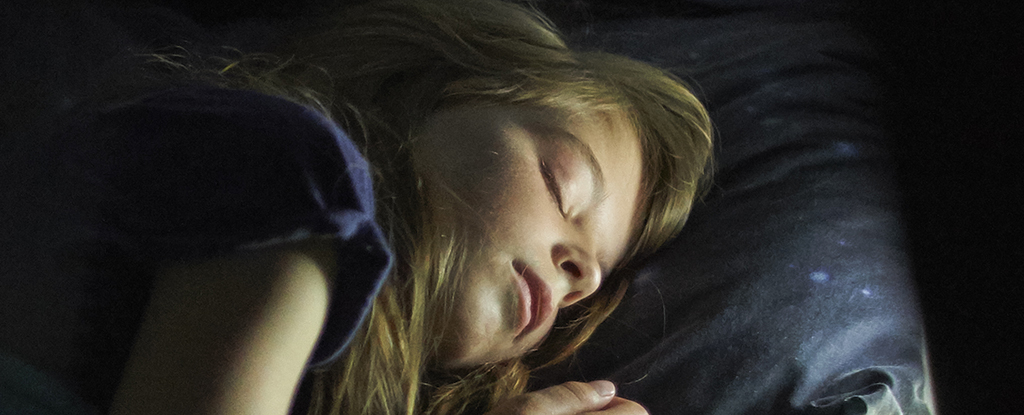
Study Reveals Brain System That Repairs Your Body While You Sleep Science Alert - September 23, 2025

When we sleep, the body releases its 'growth hormone', building up and repairing muscles and bones – but the details of how and why have been something of a mystery, until now. Through a close analysis of brain circuitry in mice, researchers have found special mechanisms and feedback loops that regulate growth hormone release while we sleep.
Pseudoscience Explanation: The brain is a computer that observes the world through binary code and is rebooting.
When your mind goes 'blank,' your brain activity resembles deep sleep, scans reveal Live Science - August 3, 2025
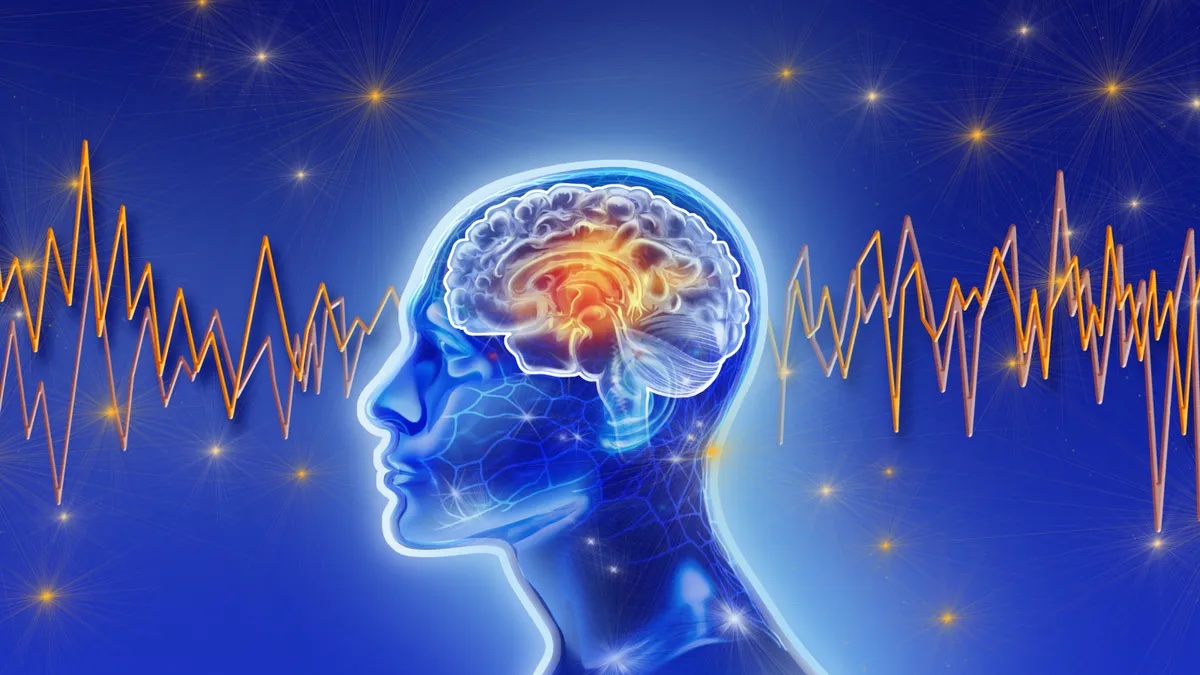
Neuroscientists think moments of "mind blanking" could be a way for the brain to protect itself. You look up from your phone screen and suddenly realize you weren't thinking about anything. It's not a lapse in memory or a daydream; it's literally a moment when you're not thinking of anything at all. Neuroscientists have a term for it - mind blanking - which they define as a brief, waking state when conscious thought simply stops. Scientists used to think our waking minds were always generating thoughts, but recent research shows that's not the case. Mind blanking is now recognized as a distinct conscious state associated with changes in arousal, which in neuroscience refers to alertness and responsiveness to stimuli. Studying this curious state could shed light on how consciousness works, some researchers think.
Losing Just One Night's Sleep Changes Your Immune System, Study Finds Science Alert - March 7, 2025
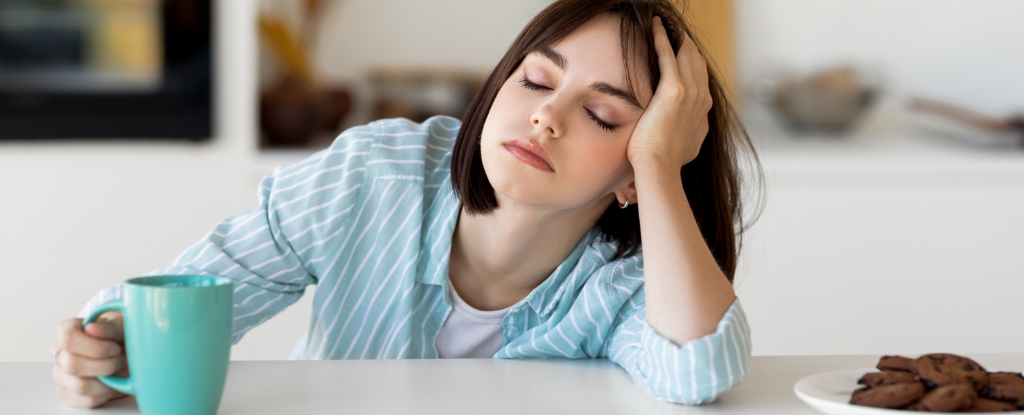
A new study suggests, even a single night of sleep deprivation may cause significant upheaval in the immune system, potentially contributing to the development of conditions like obesity, diabetes, and heart disease.
Deep sleep could be key to forestalling slow declines in brain health that may one day lead to Alzheimer's disease, the most common form of dementia Science Alert - February 27, 2025
Think of deep sleep almost like a life raft that keeps memory afloat, rather than memory getting dragged down by the weight of Alzheimer's disease pathology.
A Million Were Struck by This Mysterious Disease Known as Encephalitis Lethargica, or the "Sleepy Sickness" Before It Vanished Science Alert - October 30, 2024

Far from being a rarity, this disease affected a million people worldwide during and after the first world war. Then it vanished and has remained a mystery for the past century. The question that has never been answered is: what caused it? The disease was first described by a neurologist in Vienna in 1917. It was noted that the initial symptoms were similar to those of flu, but that's where the similarities ended. Over the next few weeks, some would be unable to sleep at all, while others would be so drowsy they could be woken for only a few minutes to eat. About half died in this early phase, but those who survived were even more perplexing. After recovering, often returning to work, many started to notice stiffness, slowness in their movements and even that their eyes would get stuck in certain positions.
Pink Noise - The Answer To Your Sleep Issues Or A Buzz About Nothing? IFL Science - August 17, 2024
Noise can be categorized as a range of different colors based on its acoustic characteristics, and pink noise is just one of these. The most famous is probably white noise, which is an equal mash-up of all the different sound frequencies that we can hear. What comes out is an indistinct, continuous hissing noise that can be useful for drowning out other, more annoying sounds. Pink noise also contains all the frequencies, but at a decreasing intensity of three decibels per octave – the higher the frequency, the lower the intensity. What that translates to is a lower-pitched sound than white noise, which some people find more pleasant to listen to.
Sleep Wrinkles Are a Real Thing, And It's All About How You Sleep Science Alert - May 18, 2024
You wake up, stagger to the bathroom and gaze into the mirror. No, you're not imagining it. You've developed face wrinkles overnight. They're sleep wrinkles. Sleep wrinkles are temporary. But as your skin loses its elasticity as you age, they can set in.
Scientists Identified Four Distinct Sleep Types - And How They Affect Health Science Alert - April 4, 2024 Science Alert - April 4, 2024
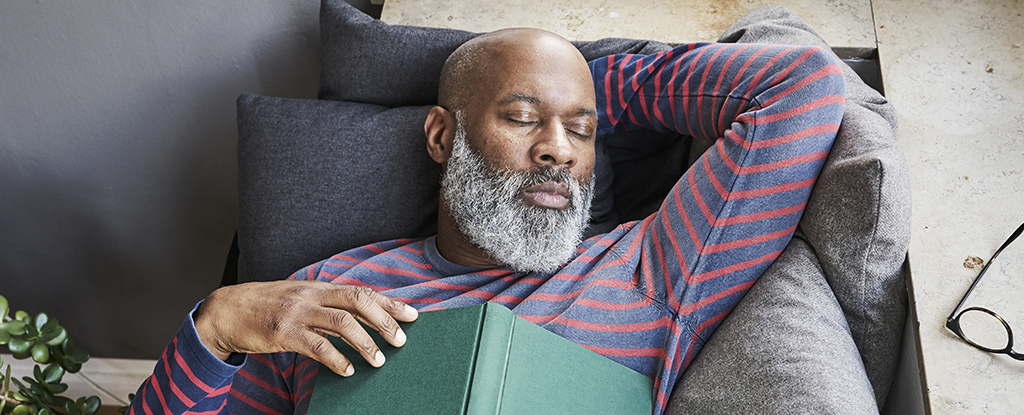
According to the researchers each type of sleep pattern affects our health differently. They also found that people were unlikely to change their sleep habits over time. Good sleepers had a healthy sleep routine, with optimal regularity in timing and amount, satisfaction, alertness during the daytime, appropriate bedtimes, efficiency in nodding off and waking, and solid duration. There were also weekend catch-up sleepers, who had lower than average sleep periods in general, but caught up at weekends or on non-working days. Then there were insomnia sleepers, who showed classic signs of insomnia: having trouble sleeping, being tired during the day, and taking a long time to fall asleep. The fourth type of sleeper was the napper, with mostly good sleep patterns and frequent daytime naps.
Why do I wake up at 3 a.m. every night? CNN - March 12, 2024
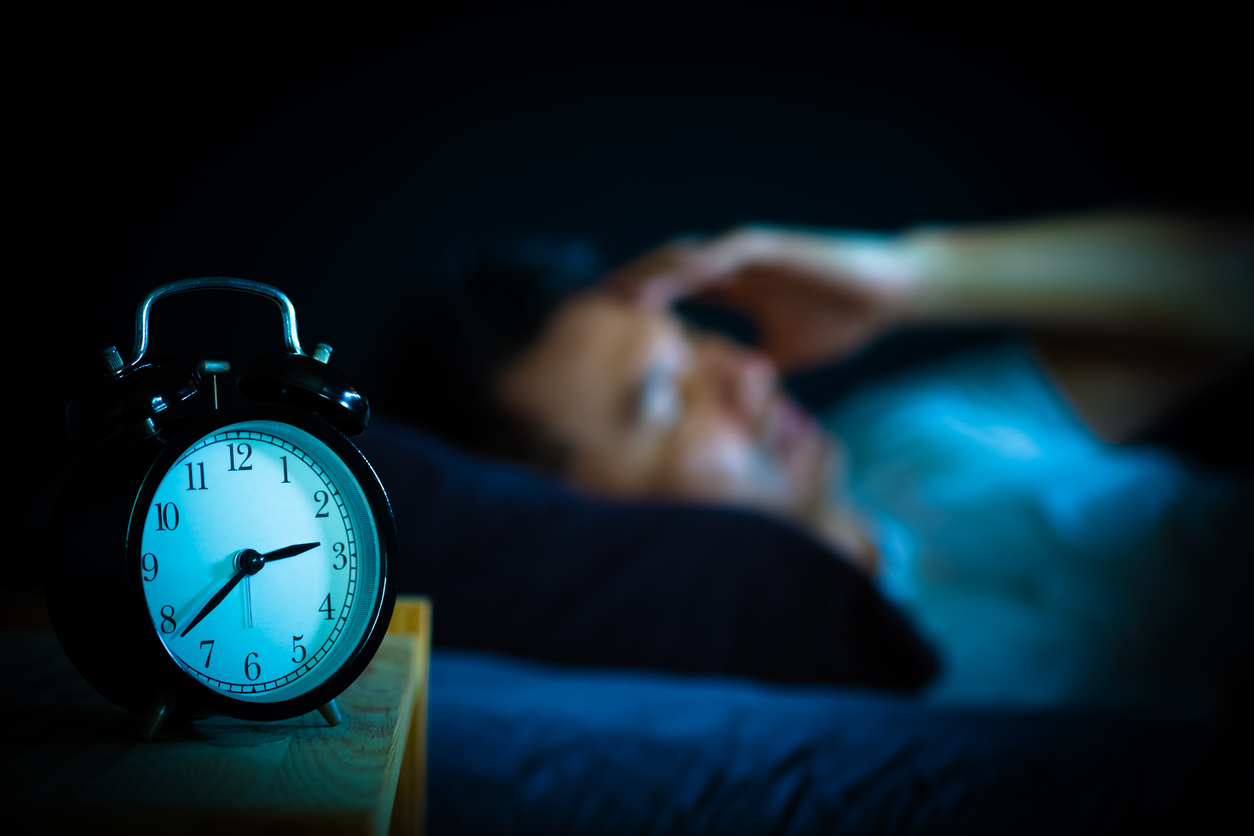
If that sounds familiar, it’s because nocturnal awakenings happen to a lot of people. Waking up several times throughout the night is a natural occurrence often due to sleep architecture, which are the stages of sleep that one cycles through every night. These awakenings usually only last for anywhere from a few seconds up to a few minutes - if they happen too frequently in one night or there are disruptions to falling back asleep, that could be a problem. Here’s what experts say could help.
Researchers find variations in sleep patterns in patients with cluster headaches Medical Express - September 6, 2023
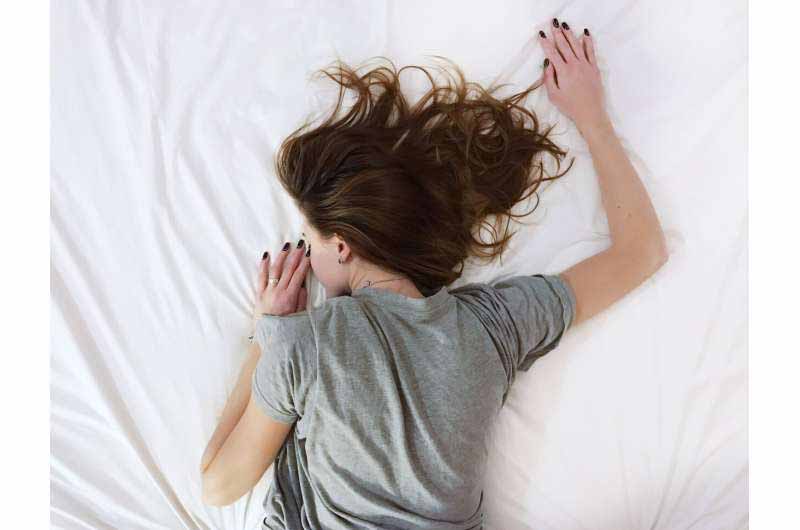
Researchers have recorded sleep with two complementary methods (actigraphy and diaries). Both methods show changes in sleep patterns and sleep quality in patients with cluster headache compared to control subjects that are consistent with the symptoms of insomnia.
Can Drinking Coffee Save You From Sleep Deprivation? A Psychologist Explains Science Alert - August 19, 2023

Caffeine improved the ability to pay attention in sleep-deprived participants so well that their performance was similar to people who slept all night. Giving caffeine to people who had a full night of sleep also boosted their performance. So caffeine helped everyone maintain attention, not just those who did not sleep. This result was not surprising, as other studies have had similar findings.
Sleep starts: Why your body ‘hiccups’ as you fall asleep CNN - February 9, 2023
Sleep starts usually involve one strong jerk that moves most of your body, with the arms and legs more likely to be affected. This can jolt you awake before you have the chance to fall asleep.
Does short sleeper syndrome really exist - people can achieve the same level of rest as a conventional sleeper but in a shorter period of time Live Science - January 17, 2023
Short sleeper syndrome (SSS) is a sleep condition characterized by sleeping for fewer than six hours each night. Most adults need seven or more hours of sleep each night to feel rested in the morning. Those with SSS, however, can function normally throughout the day despite less sleep. They don’t need to take naps or sleep more than normal to recover from lack of sleep. These individuals are different from those short sleepers who choose to limit their sleep.
For humans, a nightly doze plays an important role in health: It enables people to think clearly, function effectively and provides an opportunity for the brain to wash itself. Most adults require between seven and nine hours of sleep per night, according to the National Sleep Foundation (opens in new tab), yet some people have as little as five or six. Former U.S. president Barack Obama, for example, admitted to sleeping for as few as five hours per night during his presidency, while Margaret Thatcher, the former prime minister of the United Kingdom, claimed she only needed to get her head down for four hours each night.
The Human Mind Is Not Meant to Be Awake After Midnight, Scientists Warn Science Alert - August 4, 2022
Plenty of evidence suggests the human mind functions differently if it is awake at nighttime. Past midnight, negative emotions tend to draw our attention more than positive ones, dangerous ideas grow in appeal and inhibitions fall away. Some researchers think the human circadian rhythm is heavily involved in these critical changes in function, as they outline in a new paper summarizing the evidence of how brain systems function differently after dark. Their hypothesis, called 'Mind After Midnight', suggests the human body and the human mind follow a natural 24-hour cycle of activity that influences our emotions and behavior. In short, at certain hours, our species is inclined to feel and act in certain ways. In the daytime, for instance, molecular levels and brain activity are tuned to wakefulness. But at night, our usual behavior is to sleep. From an evolutionary standpoint this, of course, makes sense. Humans are much more effective at hunting and gathering in the daylight, and while nighttime is great for rest, humans were once at greater risk of becoming the hunted.
The answer is simple. When we dream - consciousness is focused in another part of the grids that create the illusion of reality. Our brains are simultaneously experiencing in many different grids that we call past, present, and future when stuck in physical reality ... but outside of that all can be viewed at the same time. Yes folks we are limited in thinking in physical reality knowing there is more out there and trying desperately to figure it out through meditation, etc. but it's so simple.
We Lose One Crucial Feature of Consciousness While We Sleep, an 8-Year Study Reveals Science Alert - July 15, 2022
When we dream, something mysterious happens within our brains - we experience something similar to being awake, and yet also very different to being awake, and scientists are still trying to unpick exactly what's going on in that in-between state.
Breathing: The master clock of the sleeping brain - neuroscientists have shown that breathing coordinates neuronal activity throughout the brain during sleep and quiet Medical Express - January 24, 2022
While we sleep, the brain is not switched off, but is busy with "saving" the important memories of the day. To achieve that, brain regions are synchronized to coordinate the transmission of information between them. Yet, the mechanisms that enable this synchronization across multiple remote brain regions are not well understood. Traditionally, these mechanisms were sought in correlated activity patterns within the brain.
Even in The Depths of Sleep, Our Brains Are Alert to Stranger Danger, Says New Study Science Alert - January 22, 2022
Even as we slumber, our industrious brains continue working to keep us alive. They ensure our heartbeats and breathing remain on track, wash off the waste they've accumulated throughout the day, and sort and file our memories. Now it seems they achieve all this and more while also monitoring our surroundings for stranger danger.
Some of the world's most creative minds, including Salvador Dali and Thomas Edison described using this sleep technique to bolster creativity. Live Science - December 9, 2021
Visionaries such as Dali and Edison would hold an object, such as a spoon or a ball, while lying down to sleep. As they drifted off, the object would fall, make a noise and wake them up. Having spent a few moments on the brink of unconsciousness, they would be ready to start their work.
Why do we breathe so loudly when we sleep? Live Science - February 15, 2021
During the most peaceful sleep, some people snore obnoxiously loud, ruining the chances of slumber for anyone sharing their bedroom. But even those who don't snore do breathe louder when they nod off than when they're awake. Why do people breathe so loudly when they sleep? The sound made when you breathe - whether awake or asleep - is caused by the vibration of air moving through the breathing tube. How loud the breathing sounds depends on how narrow the breathing tube is and how fast air travels through it. "You can almost view it as a musical instrument. When you breathe in, rapid air movement flowing into your upper airway - the part of the respiratory system that extends from the mouth to the larynx - decreases pressure in the entire respiratory tract, also known as the airway. This pressure change can collapse the upper airway which obstructs breathing. A reflex in the upper airway prevents this collapse and keeps your pipes open when you're awake. Because it's open, the flow through that airway is not turbulent, so the air moves without a lot of sound. But when you're asleep, that reflex isn't as strong. The upper airway tends to partially collapse, and breathing becomes noisier.
Why Sleepwalking Still Mystifies Scientists Discover Magazine - November 25, 2019
Somewhere in the murky space that divides alert from dormant - an enigmatic realm through which we all drift in the course of a good night's sleep - the human body sometimes behaves as though it belongs to both worlds at once.
Study suggests women may be undertreated for obstructive sleep apnea Medical Express - November 25, 2019
Obstructive sleep apnea (OSA) has been considered a predominantly male disease. While more women have been diagnosed with OSA in recent years, the numbers remain disproportionate, with 3-to-5 times more men than women receiving an OSA diagnosis. A high proportion of women experienced sleep apnea during dream sleep, which is associated with adverse outcomes including cardiovascular disease.
Haunted by the past: Insomniacs unable to get emotional distress off their mind Medical Express - April 25, 2019
Cringe-worthy mistakes and embarrassing blunders made today won't seem so bad tomorrow. That is, unless you're an insomniac
Sleep frees up the hippocampus for new memories Medical Express - April 25, 2019
Two regions of our brain are central for storing memories: the hippocampus and the neocortex. While the hippocampus is primarily responsible for learning new information and its short-term storage, the neocortex is able to store large amounts of information for a long time.
6 Sleep myths damaging your health BBC - April 16, 2019
Myth 1 - You can cope on less than five hours' sleep
Myth 2 - Alcohol before bed boosts your sleep
Myth 3 - Watching TV in bed helps you relax
Myth 4 - If you're struggling to sleep, stay in bed
Myth 5 - Hitting the snooze button
Myth 6 - Snoring is always harmless
New proof that narcolepsy is an autoimmune disease Medical Express - March 18, 2019
Researchers from the University of Copenhagen have discovered auto-reactive cells in persons suffering from narcolepsy. This is a new, important proof that the sleep disorder is an autoimmune disease. This knowledge may lead to better treatment of the chronic condition, the researchers behind the new discovery believe.
To sleep, perchance to heal: Newly discovered gene governs need for slumber when sick Science Daily - January 31, 2019
Direct link between illness and the need for more sleep.
Learning new vocabulary during deep sleep Science Daily - January 31, 2019
Researchers showed that we can acquire the vocabulary of a new language during distinct phases of slow-wave sleep and that the sleep-learned vocabulary could be retrieved unconsciously following waking. Memory formation appeared to be mediated by the same brain structures that also mediate wake vocabulary learning.
Researchers propose how REM and non-REM sleep may work together to help us solve problems Medical Express - May 16, 2018
Sleep is known to be important for creative thinking, but exactly how it helps and what role each sleep stage - REM and non-REM - plays remains unclear. A team of researchers have now developed a hypothesi to explain how the interleaving of REM and non-REM sleep might facilitate creative problem solving in different but complementary ways.
Writing a To-Do List Before Bed Could Help You Sleep Live Science - January 13, 2018
It sounds simple, but there's evidence that it just might work. According to a small study published in the January issue of Journal of Experimental Psychology, participants who took 5 minutes to write out a to-do list before bed fell asleep more quickly than participants who wrote about tasks they had already completed. The key, according to researchers, is in mentally "offloading" responsibilities before bedtime, theoretically freeing the mind for sound sleeping.
The world's insomniacs revealed: Interactive tool maps the countries that have trouble sleeping Daily Mail - February 24, 2017
The map is based on the number of people tweeting about struggling to sleep around the world
Users can zoom in on their specific area, or view a map showing a wider range
The US has the most people tweeting about insomnia, followed by Brazil, Argentina and the UK
The map also has a function that helps visitors to time their breathing to enable them to relax and drift off
Sleep deprivation handicaps the brain's ability to form new memories Science Daily - February 2, 2017
Studying mice, scientists have fortified evidence that a key purpose of sleep is to recalibrate the brain cells responsible for learning and memory so the animals can 'solidify' lessons learned and use them when they awaken -- in the case of nocturnal mice, the next evening. The researchers, all of the Johns Hopkins University School of Medicine, also report they have discovered several important molecules that govern the recalibration process, as well as evidence that sleep deprivation, sleep disorders and sleeping pills can interfere with the process.
New study illuminates key aspects of how we fall asleep and wake up Medical Express - April 14, 2016
Falling asleep and waking up are key transitions in everyone's day. Millions of people have trouble with these transitions - they find it hard to fall asleep or stay asleep at night, and hard to stay awake during the day. Despite decades of research, how these transitions work - the neurobiological mechanics of our circadian rhythm - has remained largely a mystery to brain scientists.
How the brain consolidates memory during deep sleep Medical Express - April 14, 2016
Research strongly suggests that sleep, which constitutes about a third of our lives, is crucial for learning and forming long-term memories. But exactly how such memory is formed is not well understood and remains, despite considerable research, a central question of inquiry in neuroscience.
10 Reasons To Sleep That Have Nothing To Do With Being Tired Huffington Post - March 2, 2016
1. Sleep will improve your memory.
2. You won't be such a grouch.
3. It might boost your sex drive.
4. Getting those Zs may help you prolong your life.
5. You'll have a better defense against the flu.
6. It might make you more creative.
7. Sleep promotes a healthy weight and muscle mass.
8. It will ease stress.
9. You'll be a better driver.
10. It feels so. darn. good.
Why Does the Sound of Water Help You Sleep? Live Science - January 18, 2016
The crash of ocean waves, the babbling of brooks, the pitter-patter of rain on shingles - many people swear by these watery sounds to help them fall asleep and stay in la-la land. Why does flowing "agua" apparently have such a powerful and popular drowsing effect? Part of the answer lies in how our brains interpret the noises we hear - both while awake and in the dead of night - as either threats or non-threats. Certain sounds, such as screams and loud alarm clocks, can hardly be ignored. Yet other sounds, like the wind in the trees and waves lapping ashore, we sort of tune out.
Scientists detect inherited traits tied to sleep, wake, and activity cycles Medical Express - December 28, 2015
In the first study of its kind, a team of international scientists have identified a dozen inherited traits related to sleep, wake, and activity cycles that are associated with severe bipolar disorder. Researchers also were able to tie the traits to specific chromosomes, providing important clues to the genetic nature of the disorder, as well as potential new avenues for prevention and treatment.
5 Things Everyone Gets Wrong About Napping Huffington Post - December 26, 2015
Myth #1: Napping is only for the lazy -- or those under 5.
Myth: If I take a nap, I'll only wake up feeling worse.
Myth: You definitely shouldn't nap at work.
Myth: Coffee before a nap will keep me up.
Myth: I'll be more productive if I just finish this task, rather than waste time sleeping.
Surprising Ways Too Much Sleep Is Hurting Your Health Huffington Post - December 21, 2015
It's a little hard to believe there's such a thing as sleeping too much, since so many of us feel like it's a struggle to even get barely enough. But it's true: You can overdo it on sleep. While it's tough to pinpoint the "just right" amount, most adults need between seven and nine hours a night to feel and function their best. Regularly logging more than nine hours of sleep a night may be a sign of an underlying medical condition, but it also puts you at risk for a whole host of health concerns. Here are some of the biggest risks of catching too many Zzs.
Sleeping too much can raise depression risk.
It could impair the brain.
It might make it harder to get pregnant.
Sleeping too much can increase diabetes risk.
It can lead to weight gain.
It can hurt the heart.
It may lead to an earlier death.
8 Bedtime Routines That Will Help You Turn Sleep Into a Spiritual Practice Huffington Post - December 14, 2015
1. Give yourself room so that your body can reposition itself while you're unconscious.
2. Listen to ambient sounds with specific frequencies.
3. Get a real alarm clock. Keep most electronics out of the bedroom, and your phone out of your bed.
4. Have a routine you do in bed: Use moisturizer and an essential oil like lavender before you go to sleep.
5. Sleep when you're tired -- but only when you're tired -- and release your fear of "sleeping too much."
6. Don't count the hours you'll get before you go to sleep, and don't expect/assume you'll need the same number of hours every single night.
7. Forego the caffeine -- it cuts off two vital ways your body communicates with you.
8. Your body will put yourself to sleep -- get out of bed and do something if you're restless.
One night of sleep loss can alter clock genes in your tissues PhysOrg - July 20, 2015
Previous research has shown that our metabolism is negatively affected by sleep loss also linked to an increased risk of obesity and type 2 diabetes. Since ablation of clock genes in animals can cause these disease states, our current results indicate that changes of our clock genes may be linked to such negative effects caused by sleep loss. The researchers do not at this stage know how persistent these changes are. It could be that these changes are reset after one or several nights of good sleep. On the other hand, epigenetic marks are suggested to be able to function a sort of metabolic memory, and have been found to be altered in e.g. shift workers and people suffering from type 2 diabetes.
This Is Your Body on Sleep Deprivation Huffington Post - July 1, 2015
Your Brain Goes Haywire
Your ability to solve problems takes a nosedive as does your memory
Your Metabolism Slows Down
Your Skin Gets Dull
Your Blood Pressure Spikes
Your Sex Drive Might Plummet
Your Immune System Takes a Hit
Here's What Lack Of Sleep Can Do To You In Just One Day Huffington Post - June 11, 2015
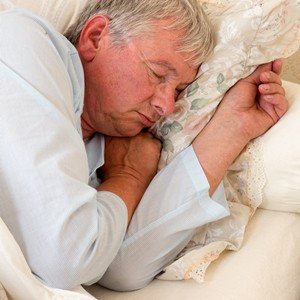
For years, studies have linked lack of sleep with poorer cognitive performance. Now there's another good reason to get enough shut-eye: Just one bad night's sleep can make older adults age faster. Our data support the hypothesis that one night of not getting enough sleep in older adults activates important biological pathways that promote biological aging.
Study unites neuroscience and psychology to paint more complete picture of sleep and memory PhysOrg - June 11, 2015
A new study from the Florida campus of The Scripps Research Institute (TSRI) integrates neuroscience and psychological research to reveal how sleep is more complex than the Bard might have imagined. The new research shows in animal models that sleep suppresses the activity of certain nerve cells that promote forgetting, insuring that at least some memories will last. We have revealed that one of the ways sleep protects a new memory is by quieting dopamine neuron activity that causes forgetting. Since laboratory animals and humans share a need for sleep, as well as many genetic and circuit mechanisms underlying learning and memory, our findings may shed light on the mechanisms underlying the interaction between sleep and memory in humans.
7 Big Things We Learned About Sleep In The Past Decade Huffington Post - May 25, 2015
Sleep has been called the "third pillar" of health, along with nutrition and exercise. Getting the quality sleep that you need has the power to protect your physical and mental health, while skipping out on sleep can seriously hurt your health, cognition and well-being over time.
1. A sleeping brain is an active brain.
2. Sleep is an important key to health.
3. There are perks to being an early bird.
4. Scientists have discovered how to "reset" the brain's biological clock.
5. Smartphones are hurting our sleep.
6. Sleep loss can mess with your judgment.
7. Shift work can be detrimental to sleep.
9 Ways to Sleep Better During Allergy Season Huffington Post - March 28, 2015
It might not feel like spring quite yet in some parts of the country, but as warmer weather approaches, blooming flowers and endless loads of allergy-inducing pollen will be here in the blink of a (red, watery) eye. Of course, if you already suffer from seasonal allergies, you know that the itching, sneezing, stuffiness and general discomfort don't stop at bedtime. Like a cold or the flu, allergies can make quality shut-eye much harder to achieve.
1. Keep your indoor air clean.
2. Crank up the dehumidifier.
3. Keep your sheets squeaky clean.
4. Consider anti-allergy bedding.
5. Give Fido the nighttime boot.
6. Shower at night instead of in the morning.
7. Skip the nightcap.
8. But not your nighttime meds.
9. Know when it's time for a new mattress and pillows.
Why a long night's sleep may be bad for you BBC - March 25, 2015
Many of us try, but often fail, to get eight hours' sleep each night. This is widely assumed to be the ideal amount - but some experts now say it's too much, and may actually be unhealthy. We all know that getting too little sleep is bad. You feel tired, you may be irritable, and it can contribute to obesity, high blood pressure, diabetes, and heart disease, doctors say. But too much sleep? You don't often hear people complaining about it. However, research carried out over the past 10 years appears to show that adults who usually sleep for less than six hours or more than eight, are at risk of dying earlier than those sleep for between six and eight hours.
8 Health Risks Of Sleeping Too Much Huffington Post - February 16, 2015
It's a little hard to believe there's such a thing as sleeping too much, since so many of us feel like it's a struggle to even get barely enough. But it's true: You can overdo it on sleep.
Mindfulness Meditation May Help Older Adults Sleep Better Live Science - February 16, 2015
Meditating may help older adults sleep better, a new study suggests. The study involved about 50 adults in Los Angeles ages 55 and older who had trouble sleeping, including difficulty falling asleep or staying asleep, or who felt sleepy during the day. Participants were randomly assigned to complete either a mindfulness meditation program - in which people learn to better pay attention to what they are feeling physically and mentally from moment to moment - or a sleep education program that taught the participants how to develop better sleep habits. The participants also completed a questionnaire to assess how well they were sleeping, and were given a score from 0 to 21, with higher scores indicating worse sleep.
Sleepless in High School: Teens Getting Less Shut-Eye Live Science - February 16, 2015
The amount of time that teens spend sleeping has substantially declined over the last 20 years, a new study suggests. The results from a large national survey show that the percentage of U.S. teenagers who regularly get seven or more hours of shut-eye is consistently decreasing. For example, surveys of teens done in the early 1990s showed that about 52 percent of 15-year-olds reported getting at least seven hours of sleep, whereas in 2011-2012, just 43 percent of 15-year-olds said the same. About 36 percent of 18-year-olds said they got at least seven hours of sleep in the early 1990s, but in 2011-2012, only about 33 percent did.
Can poor sleep lead to dementia? PhysOrg - December 10, 2014
People who have sleep apnea or spend less time in deep sleep may be more likely to have changes in the brain that are associated with dementia. The study found that people who don't have as much oxygen in their blood during sleep, which occurs with sleep apnea and conditions such as emphysema, are more likely to have tiny abnormalities in brain tissue, called micro infarcts, than people with higher levels of oxygen in the blood. These abnormalities are associated with the development of dementia.
5 Tricks For The Best Nap Ever Huffington Post - December 8, 2014
Find The Middle Ground
Keep It Brief
Sack Out On The Sofa
Keep It Quiet
Coordinate The Caffeine
7 Ways Sleep Affects Your Work Huffington Post - September 28, 2014
Sleep can impact your wages.
Getting enough Zzzzs could mean less risk for job burnout.
Getting too little (or too much!) sleep can mean more sick days.
Sleep strengthens the sort of memory that can help you on the job.
Getting enough sleep keeps you thinking creatively.
A lack of sleep can make you less productive.
Sleep deprivation is hurting your employer -- and the economy.
No sedative necessary: Scientists discover new 'sleep node' in the brain Science Daily - September 19, 2014
A sleep-promoting circuit located deep in the primitive brainstem has revealed how we fall into deep sleep. This is only the second 'sleep node' identified in the mammalian brain whose activity appears to be both necessary and sufficient to produce deep sleep. The study demonstrates that fully half of all of the brain's sleep-promoting activity originates from the parafacial zone (PZ) in the brainstem. The brainstem is a primordial part of the brain that regulates basic functions necessary for survival, such as breathing, blood pressure, heart rate and body temperature.
6 Things You Didn't Know About Insomnia And How To Treat It Huffington Post - September 10, 2014
Waking up on the right side of the bed can be tough... if you only fell asleep 30 minutes ago. We all know what it feels like to toss and turn throughout the night, but for nearly 10 percent of Americans, insomnia is a chronic problem -- lasting a month or longer, and characterized by difficulty falling or staying asleep.
Flinders sleep experts try new tactic to fight fatigue PhysOrg - August 28, 2014
In a world-first, sleep experts from Flinders University are attempting to fight fatigue caused by insomnia and obstructive sleep apnea (OSA) by treating the two conditions at the same time. Led by internationally-renowned sleep disorder specialists Professor Doug McEvoy and Professor Leon Lack, the study aims to treat both conditions, providing fresh hope for the thousands of people who experience severe fatigue and daytime sleepiness as a result of suffering both conditions (co-morbidity).
Sleep's memory role discovered BBC - June 5, 2014
A connection between two brain cells -- It is well known that sleep plays an important role in memory and learning. But what actually happens inside the brain has been a source of considerable debate. Researchers at New York University School of Medicine and Peking University Shenzhen Graduate School trained mice in a new skill - walking on top of a rotating rod. They then looked inside the living brain with a microscope to see what happened when the animals were either sleeping or sleep deprived. Their study showed that sleeping mice formed significantly more new connections between neurons - they were learning more.
Do You Talk In Your Sleep? Huffington Post - February 3, 2014
Sleep talking can happen to anyone, though it does appear to be somewhat inherited and affect males and children more often than women. The most common triggers are sleep deprivation, alcohol and drug use, fever, increased stress, anxiety and depression. It is also seen as a symptom in the context of other sleep disorders: night terrors, confusional arousals (waking up in a confused state), sleepwalking, sleep apnea and REM behavior disorder.
7 Health Problems Improved By Sleep Huffington Post - November 30, 2013
Weight gain
Diabetes Risk
Low Libido
Slipping Memory
Frequent Colds
Stroke Risk
Cancer Risk
Sleep 'cleans' the brain of toxins BBC - October 18, 2013
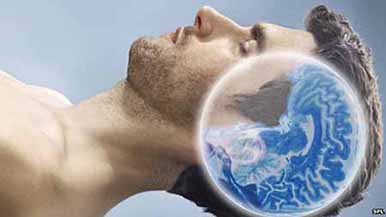
The brain uses sleep to wash away the waste toxins built up during a hard day's thinking, researchers have shown. The US team believe the "waste removal system" is one of the fundamental reasons for sleep. Their study, in the journal Science, showed brain cells shrink during sleep to open up the gaps between neurons and allow fluid to wash the brain clean. They also suggest that failing to clear away some toxic proteins may play a role in brain disorders. One big question for sleep researchers is why do animals sleep at all when it leaves them vulnerable to predators?
Insomniacs' brains lose focus, scans suggest BBC - August 30, 2013
Brain scans of people who say they have insomnia have shown differences in brain function compared with people who get a full night's sleep. People with insomnia struggle to sleep at night, but it also has consequences during the day such as delayed reaction times and memory.
To sleep: perchance to dream ... PhysOrg - July 24, 2013
"Sleep is the best medicine," says the old proverb. But many adults don't benefit enough from sleep, with as many as 60 percent reporting sleep problems at least several nights a week. Approximately 40 million Americans suffer from sleep deprivation, and the consequences can be serious, including accidents while working or driving. Untreated long-term sleep problems can lead to heart disease, mood disorders, weight gain and shortened life spans.
Brain's 'Clock' Disrupted in Depressed People Live Science - May 14, 2013
Disrupted sleep is so commonly a symptom of depression that some of the first things doctors look for in diagnosing depression are insomnia and excessive sleeping. Now, however, scientists have observed for the first time a dysfunctional body clock in the brains of people with depression. People with major depression, also known as clinical depression, show disrupted circadian rhythms across brain regions, according to a new study published today in the journal Proceedings of the National Academy of Sciences. Researchers looked at post-mortem brain samples from mentally healthy donors and compared them with those of people who had major depression at the time of their death. They found that gene activity in the brains of depressed people failed to follow healthy 24-hour cycles.
Bizarre Perpetual Sleepiness Explained Live Science - November 26, 2012
A new treatment may help people with a bizarre medical condition that makes them perpetually sleepy. The findings may provide relief for the people who sleep constantly and feel exhausted despite caffeine, other stimulants, and several alarm clocks. People with hypersomnia need to sleep about 70 hours a week and have trouble rousing from sleep. When they are awake, they usually feel as if they've pulled an all-nighter, and describe it as walking around in a fog. Most people come to a diagnosis after conditions like depression, sleep apnea or thyroid problems have been ruled out.
Brain regions sleep more deeply when used more -- also in birds PhysOrg - January 12, 2011
During deep sleep the brain is highly electrically active - but only in those regions, which were heavily used previously while awake. When we are asleep, those regions of our brain that were particularly active during wakefulness sleep more deeply.
Sleep mode: The energy cost of sleep deprivation PhysOrg - January 12, 2011
The findings show that missing a night of sleep burns roughly 135 calories, the equivalent of two slices of bread or a 225 ml glass of semi-skimmed milk. In terms of physical exertion, this amounts to walking just under two miles. On the flip side, eight hours of sleep saved the same approximate amount of energy.